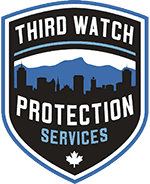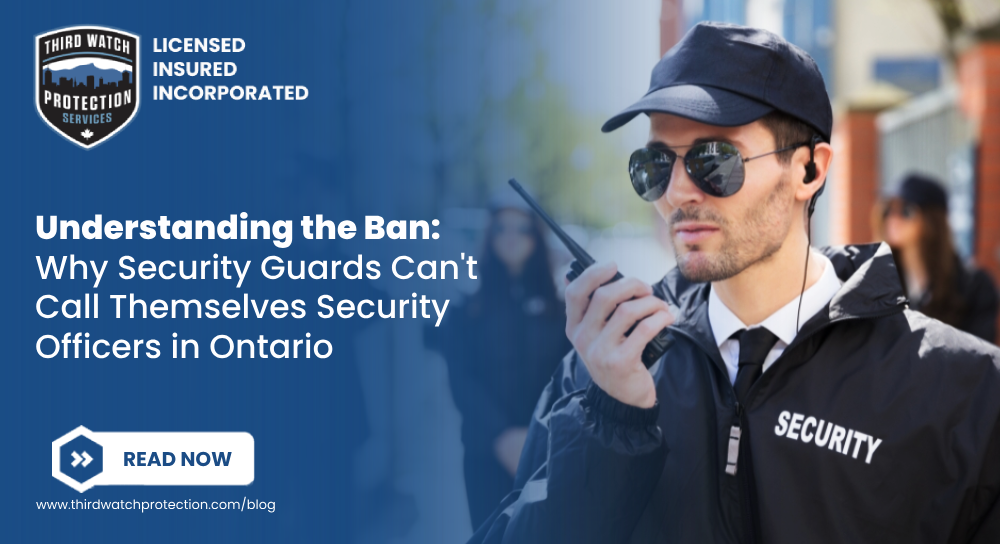Understanding the Ban: Why Security Guards Can’t Call Themselves Security Officers in Ontario
In the realm of security services in Ontario, a clear distinction exists between the titles of “security guard” and “security officer.” It may seem a trivial detail to some, yet this difference holds significant implications for individuals in the field, organizations, and the law itself. Understanding the rationale behind the restrictions on terminology is crucial for various stakeholders, from employees to employers, and even the general public.
The Legal Framework: The Private Security and Investigative Services Act
At the heart of this discussion lies the Private Security and Investigative Services Act (PSISA), which governs the security industry in Ontario. Introduced in 2005, the PSISA aims to regulate the private security sector to ensure that services provided to the public are performed by trained, licensed professionals complying with a defined code of conduct.
Under this statute, individuals working in the security field are required to possess a security guard license from the Ministry of the Solicitor General. This licensing process ensures that security guards have completed a mandatory training program, covering areas such as use of force, emergency response tactics, and report writing. However, only individuals who are employed by law enforcement or have specific roles defined by the Act can use the term “security officer.”
Why the Distinction?
Professional Standards: The distinction between a security guard and a security officer primarily hinges on the level of responsibility and training involved. The title “security officer” often implies a higher level of authority, more extensive training, and a managerial or supervisory role in the security landscape. The Ontario government’s rationale behind maintaining this distinction is to ensure that only appropriately qualified individuals are allowed to hold titles that could lead the public to believe they have more authority or training than they actually possess.
By prohibiting security guards from referring to themselves as security officers, the legislation is designed to avoid confusion about the roles and the expectations of security personnel. This helps to ensure that clients and the public have a clear understanding of who they are dealing with and what qualifications those individuals possess.
Public Confidence: Public confidence in security personnel is paramount—especially in an age where security threats can arise in various environments, from corporate offices to public events. Permitting individuals with limited training and understanding to label themselves as security officers could potentially undermine public trust. Should a security guard misrepresent themselves as an officer and fail to act appropriately in a security situation, the repercussions could be severe, not only for the individuals involved but also for the reputation of the entire security industry.
Legal Implications: Another compelling reason for the distinction lies within potential legal implications. In situations where security guards are involved in incidents requiring law enforcement—such as physical confrontations—their actions can be scrutinized through the lens of their legal authority. Misrepresenting one’s title could lead to legal liabilities for both the security individual and the company they represent. Using the term “officer” inappropriately may suggest certain legal powers or responsibilities that a security guard does not possess.
The Impact on Security Personnel: For security personnel, the ban on using the title “security officer” can be a source of frustration. Many individuals work diligently to provide safety and security in various contexts, often assuming responsibilities that surpass those described by the term “guard.”
Career Progression: The distinction can also complicate career progression within the security field. While many security guards aspire to move up the ranks into supervisory or managerial roles, the title limitation can hinder their aspirations to elevate their professional identity. It may lead to a perception that they are not afforded the same recognition as their counterparts in other sectors, ultimately frustrating those who are eager to advance.
Job Titles vs. Job Roles: Many companies in the security industry offer titles such as “site supervisor” or “lead security personnel” to help elevate the status of employees who take on more significant roles without breaching the legal requirements. Titles like these can enhance the professional image of security personnel while maintaining compliance with the PSISA.
Nevertheless, the core issue remains: even with creative job titling, the public perception and legal implications of the terms “security guard” versus “security officer” can create barriers for individuals aiming to market their capabilities effectively.
Moving Forward: Training and Education: The solution to navigating this divide is not only an understanding of the legal context but also a commitment to ongoing training and education. Security companies and personnel must prioritize the development of skills to foster professional growth while remaining compliant with provincial regulations.
Enrichment of Skill Sets: Employers can offer enhanced training initiatives focusing on areas such as conflict resolution, customer service, and crisis management. By doing so, they not only elevate the competency of their teams but also advocate for the recognition of enhanced roles within the industry. While employees may not be able to call themselves security officers, they can showcase their advanced skill sets as tradeable assets, increasing their chances for advancement.
Industry Advocacy: Additionally, there exists an opportunity for advocacy within the industry itself. By working together to promote the importance of advanced training and professional development, security companies could push for potential amendments to the PSISA, aligning with new industry standards and recognizing the varied contributions of security professionals.
In Conclusion
Understanding the ban on using the term “security officer” in Ontario is essential for appreciating the structure that exists within the security industry. While the distinction has its advantages in ensuring professionalism and public confidence, it also presents challenges for security guards seeking recognition for their valuable contributions.
As the security landscape continues to evolve, so too must the approaches taken by individuals and organizations in navigating these regulations. Training, education, and advocacy will play pivotal roles in shaping the future of the industry, and surmounting current hurdles will require collective action from all stakeholders involved. In this way, security personnel can uphold their professionalism while actively engaging in the ongoing evolution of an industry that is both vital and challenging.
If you are interested in the new Security provider, Third Watch Protection Services is here to help protect your property. Call us today at 1-888-444-5232 or email mail@thirdwatchprotection.com to get started!



